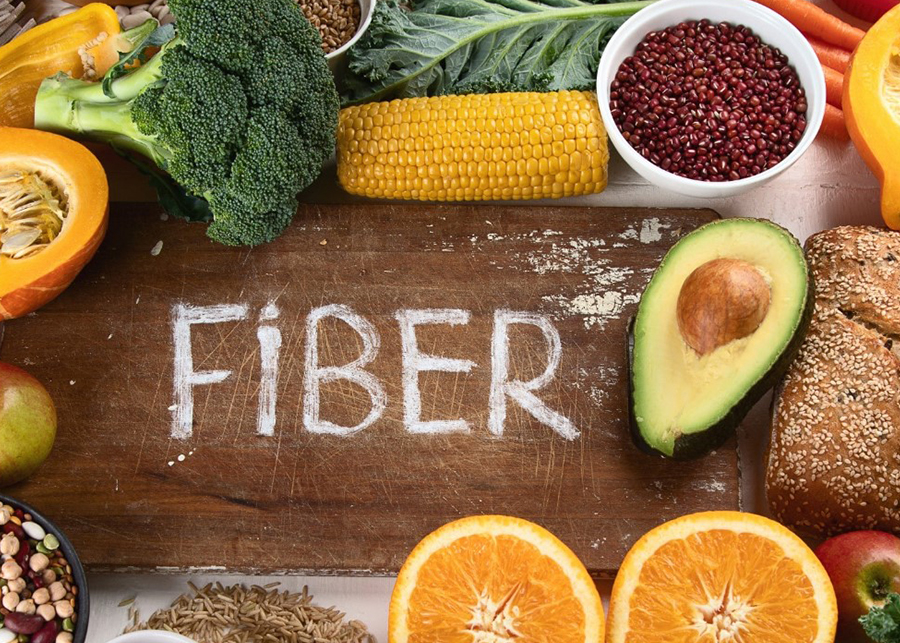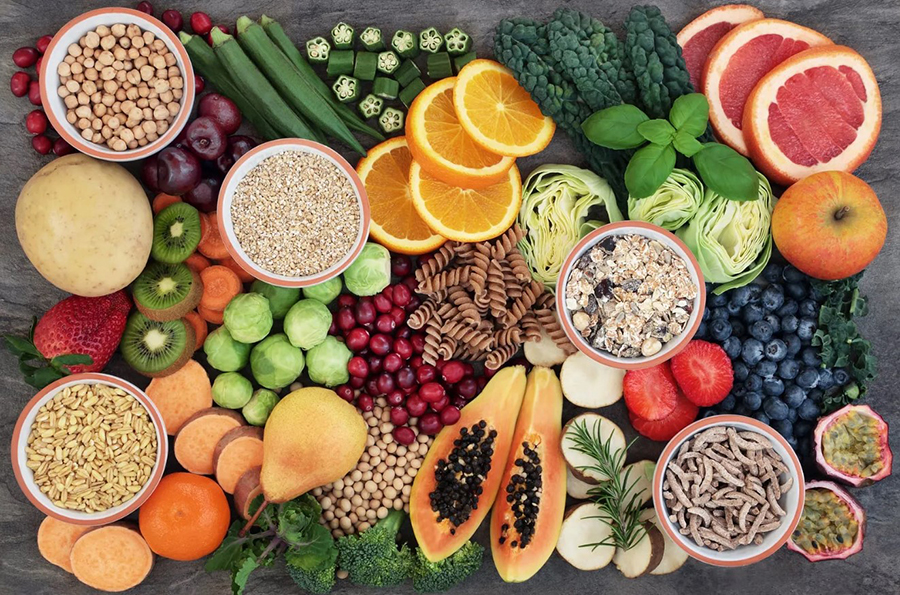
A veggie burger is the way to go if you want a high-fiber meal. It contains around two to three times the fiber of a meat burger. If you aren’t a fan of veggie burgers, there are many other ways to get more fiber into your diet. A salad, side of beans, or nuts can also help increase your fiber intake. Even a baked potato with chili is an easy and filling way to get extra fiber in your diet!
Veggie burgers are great for a high -fiber meal. They contain around two to three times the fiber of a meat burger. A salad, side of beans, or nuts can also help increase your fiber intake. You can also try a baked potato with chili for a fiber-packed meal. Some burger chains also offer oatmeal bowls. They’re higher in fiber than most breakfast sandwiches, and they’re available in lower-sugar versions, too.

Fruits
Fruits are an excellent source of fiber and can add significant amounts of this important nutrient to your diet. The average serving of a cup of fruit contains 3 to 4 grams of fiber, with some fruits offering much more. One cup of strawberries can provide more than eight grams of fiber. Other fruits that are high in fiber include pears, apples, and raspberries.
Strawberries are a great choice for snacking because they contain almost two grams of fiber per 100 grams. Strawberries are also high in vitamin C, which is an essential nutrient for healthy living. Strawberries contain more fiber than most citrus fruits and have a high water content, so they’re also an excellent choice for baking. Another fruit with high fiber content is the guava. Guava has three grams per fruit and is a great choice for healthy desserts.
Beans
Eating beans daily can significantly reduce the risk of heart disease and other types of cardiovascular disease. In addition, consuming beans can regulate the function of your colon, helping to prevent constipation and other bowel problems. Also, beans contain an anti-cancer compound called lignans. These compounds convert into hormone-like substances in the colon, which may help fight colon and breast cancer.
Beans are rich in fiber, with one half cup providing nine grams of fiber. You can add beans to salads and soups to boost the fiber content of these foods. Beans also contain high amounts of antioxidants, which helps keep the body healthy.
Chia seeds
Most of us do not eat enough fiber, but chia seeds can help us meet our daily fiber requirement. Just one tablespoon contains almost 10 grams of fiber. That’s half of the recommended daily fiber intake for women and a third of the daily requirement for men. Fiber is also useful for our digestive health and helps us feel full. Fiber-rich foods may also help with weight loss.
In addition to being a powerful source of fiber, chia seeds can also help to reduce our appetite. They contain both fiber and protein, which decrease hunger and make us feel full longer. Protein is an essential nutrient for our bodies and is made up of amino acids. The average person needs about 50 grams of protein per day. If you’re under 140 pounds, you can consume as much as 70 grams of protein in a day with chia seeds.

Oats
Fiber is an essential part of a healthy diet. Oats are high in fiber and contain two types: soluble and insoluble. Insoluble fiber helps your digestive system work better, while soluble fiber is good for your heart. Both kinds of fiber can help lower your cholesterol and increase your feeling of fullness.
Oats are also known for their antioxidant properties. This makes them a great choice for people who are concerned about their cholesterol levels. Oats also contain dietary fibers, which are beneficial for reducing the risk of cancer. Fibers may also help boost immunity and prevent diseases such as diabetes and heart disease.
Brussels sprouts
Fiber is an important nutrient for your digestive tract, and Brussels sprouts are especially high in soluble fiber. Soluble fiber absorbs water from food and softens stools, making them easier to pass. It also helps reduce the risk of bloating, diarrhea, and irritable bowel syndrome. The fiber in Brussels sprouts also feeds beneficial bacteria in your gut, which is necessary for proper digestion.
A serving of raw, boiled, drained Brussels sprouts contains 4.1 grams of fiber per 100 grams. That’s 16 percent of the recommended daily allowance for fiber. Another example is a serving of cooked, drained, without salt Brussels sprouts that contains 3.8 g of fiber. This amount represents about 13% of the recommended daily allowance for adults.

